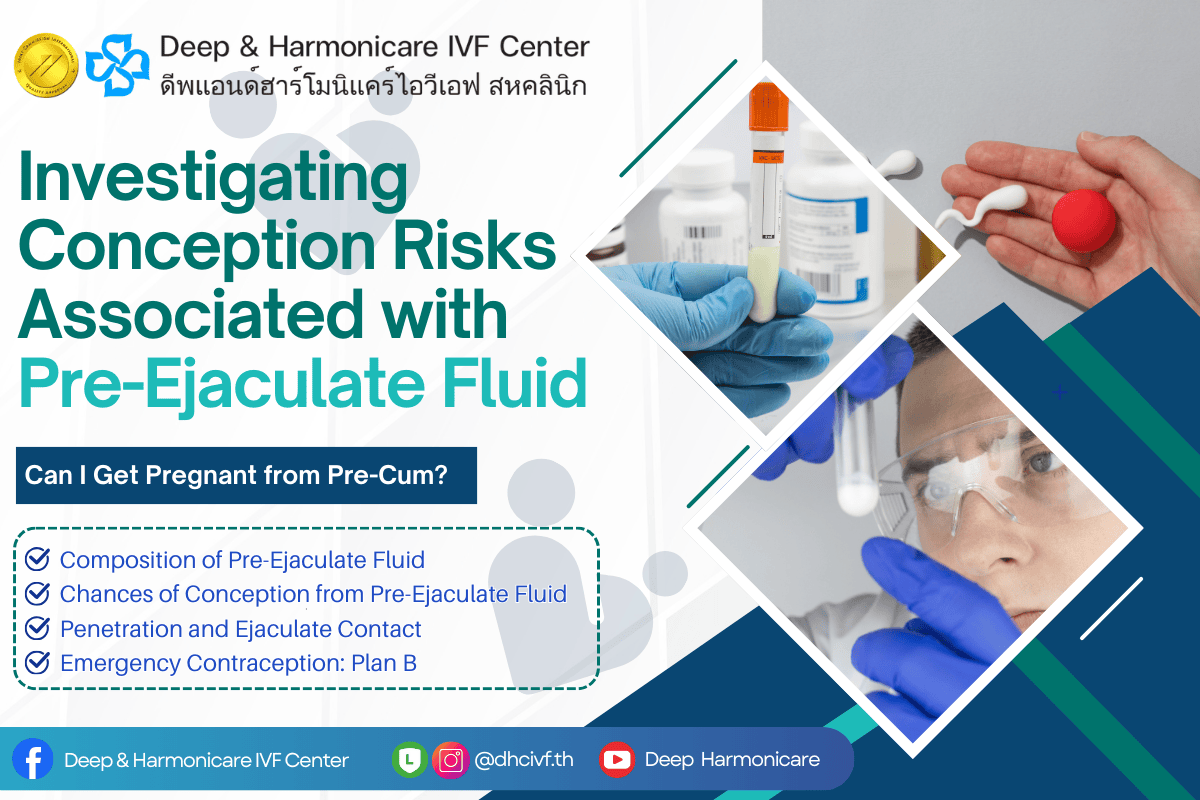Can I Get Pregnant from Pre-Cum?
The possibility of conception from pre-ejaculate fluid, often referred to as precum, has been investigated scientifically and also is the subject of great public interest. The probability is generally considered low, but the presence of viable sperm in pre-ejaculate fluid can contribute to pregnancy. In this blog I aim to review the composition for pre-ejaculate and look at the potential for conception. I will also touch up on the emergency contraception of preventing unwanted pregnancy.
Composition of Pre-Ejaculate Fluid
Pre-ejaculate fluid is a clear secretion from the penis and its role is it neutralize acidity of the urethra and provide lubrication during penetrative sex. There is much research that shows that while many samples of pre-ejaculate fluid contain little to no sperm, some do include motile spermatozoa (41%). In a study carried out by Stephen R. Killick et al., of the 41% that contained spermatozoa 37% of them were found to contain motile sperm. The finding of this study suggest that technically, although rare, pre-ejaculate fluid can potentially contribute to conception.
Chances of Conception from Pre-Ejaculate Fluid
The chances of pregnancy from pre-ejaculate fluid remain a concern due to the presence of sperm in some cases. A pilot study conducted by Jasmine Patel et al. found sperm in 12.9% of pre-ejaculate samples, though typically in concentrations not sufficient to pose a high pregnancy risk. Despite this, the potential for conception underscores the importance of using contraceptives from the onset of sexual activity.
Penetration and Ejaculate Contact
Pregnancy without penetration is extremely unlikely. However, if enough ejaculate fluid makes contact with the vaginal area, sperm can potentially migrate and fertilize an egg. People should be aware of this as it pushes the need for effective contraceptive measures such as condom use, as methods like withdrawal are not always 100% reliable due to the presence of sperm in pre-ejaculate fluid.
Survival Rate of Sperm
Believe it or not, sperm can live up to 3-5 days within the female reproductive tract. This period of viability shows the importance of understanding ovulation cycles and fertility windows for effective family planning or pregnancy prevention.
Emergency Contraception: Plan B
Most people know Plan B as an emergency contraceptive. It contains levonorgestrel which is a hormone that inhibits ovulation. For it to be most effective it needs to be taken within 72 hours after unprotected intercourse, and by doing so reduces the risk of pregnancy by 60% to 94%, as detailed in the review by Aileen Langston.
Although Plan B is shown to be very effective at preventing pregnancy it should not be used as regular contraception and should not replace regular contraception methods such as condom use.
Summary
The risk of getting pregnant from pre-ejaculate fluid (pre-cum) although very rare is not unheard of, which means that contraceptive should be used if you do not intend to become pregnant. To highlight this, we have explained the biological aspects of sperm and its presence being found in pre ejaculate fluid.
If you are having trouble falling pregnant and looking for fertility options in Bangkok then make an appointment with us here or call us on +66(0)9 3789-1313.





